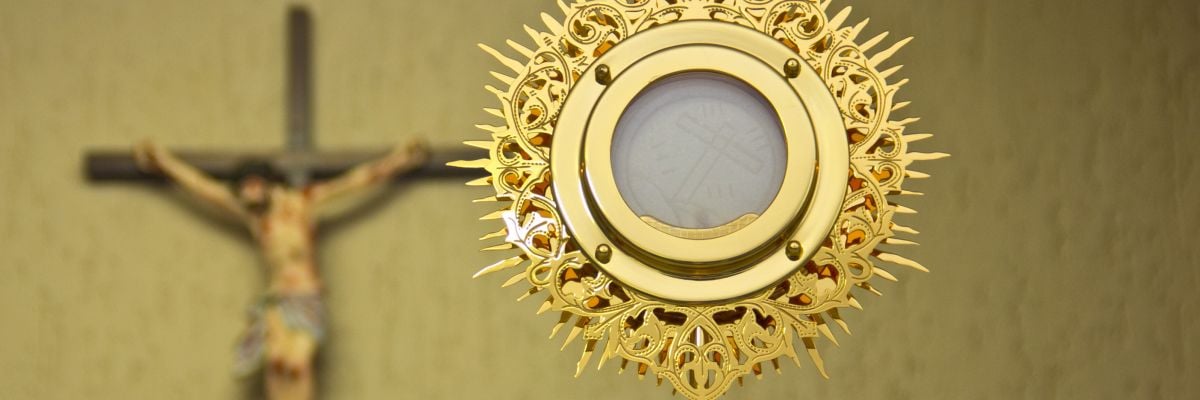
In 1965, the Church everywhere was convulsed in varying degrees by new theories brought forward by some theologians, especially in Europe above the Alps. These speculations attempted to explain the mystery of the Holy Eucharist as sacrifice and presence without the traditional realism of Catholic theology. The presence was reduced to an experience of Christ present in the worshiping community; the sacrifice became a mere symbol of the work and struggles of the Christian community.
These various theories, very dismissive of the teachings of the great medieval theologians and Doctors, had begun to show their effects—first in seminaries and religious communities and then in the local churches in parish worship. Naturally, the practices of piety and devotion that were customary before began to be set aside, and were no longer encouraged and taught. Prolonged exposition (the old “forty hours” devotion), benediction, daily individual celebration by priests, and holy hours, were less and less to be encountered. External signs of reverence like the genuflection were presented as options, easily omitted.
St. Paul VI, the reigning supreme pontiff, took all of these things to heart and decided to act to oppose these trends. The encyclical letter Mysterium Fidei was the lovely result of his anxiety. This encyclical addressed the erroneous and inadequate teachings being spread abroad. The sainted pope reasserted the infinite value of the daily celebration of Holy Mass by priests, even without a congregation, and defended the traditional and defined teaching on the mystery of transubstantiation.
Paul VI wanted to restore the realism of Catholic faith in the real and substantial presence of the Lord, enduring even outside Mass, in the tabernacles on the altars of the word. The best way to do this, he felt, was to encourage and exhort the faithful to a lively devotion to this presence through the practice of making “visits” to the Blessed Sacrament in our churches. His language is unequivocal and very moving. Here are some examples among many:
How great is the value of conversation with Christ in the Blessed Sacrament, for there is nothing more consoling on earth, nothing more efficacious for advancing along the road of holiness!
Christ is truly the Emmanuel, that is, God with us, day and night, he is in our midst. He dwells with us full of grace and truth. He restores morality, nourishes virtue, consoles the afflicted, strengthens the weak.
He proposes his own example to those who come to him, that all may learn to be like himself, gentle and humble of heart, and to seek not their own interest but those of God.
He later added, in Solemni Hac Liturgia:
The Blessed Sacrament is the “Living Heart” of each of our churches and it is our very sweet duty to honor and adore the Blessed Host, which our eyes see, the Incarnate Word, whom they cannot see.
In short, the pope saw that the only way to guarantee orthodoxy and a living faith in the Mystery of Faith was to focus on the Blessed Sacrament as the privileged place of personal prayer. This insight was continued and very forcefully by St. John Paul II and by Pope Benedict XVI, each with his own example and style of teaching.
The great St. John Vianney, who is the shining patron of priestly devotion and pastoral care of the faithful, loved to recount the example of a devout old man of his parish whom he saw day after day in the church on his knees in silence without so much as a prayer book, just looking at the tabernacle. When Vianney asked him what he was doing, he replied, “I look at the good God and he looks at me.” The saint pronounced the old man an example of contemplation.
Let us go to our tabernacles to gaze by faith and love on our good God, and most importantly, to experience his gaze upon us. As Catholics we have this treasure of our teaching on the Holy Eucharist. May we begin to experience its fruits in our life of prayer and so follow in the way of the saints!



